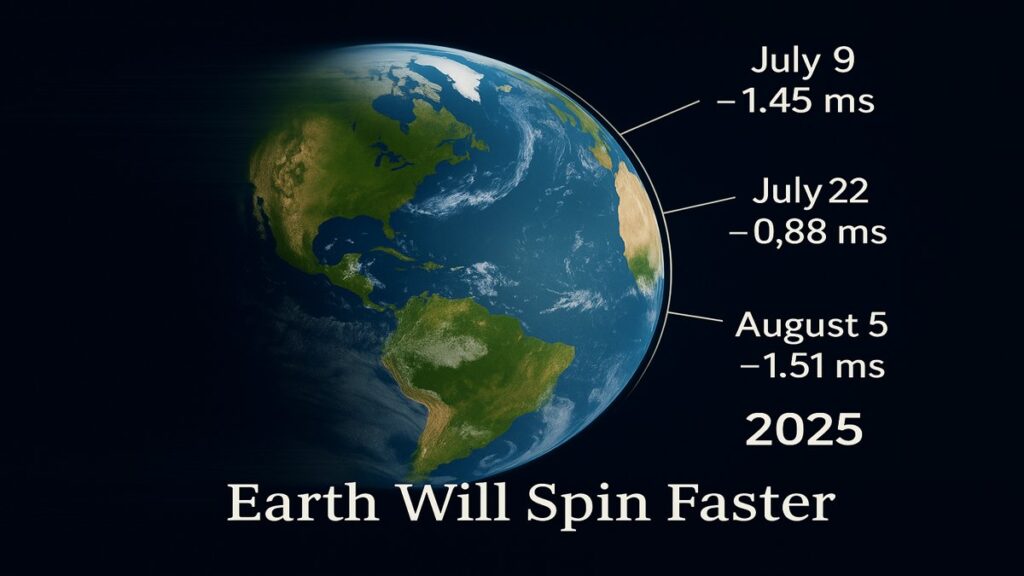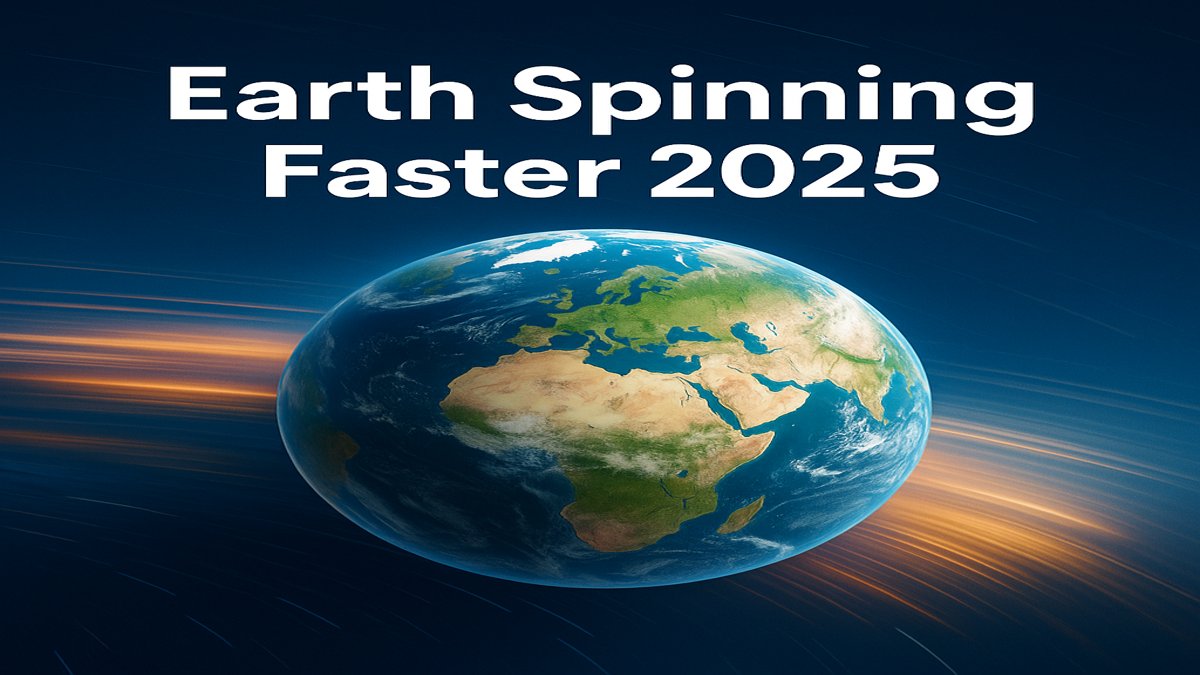Earth Spinning Faster 2025 – Yes, it’s real! Scientists have officially confirmed that Earth rotated faster in 2025 than ever recorded, leading to the shortest days in modern history. But why is this happening? Could it disrupt time, GPS, or even your daily schedule? Let’s uncover the truth behind this fascinating scientific discovery.
Earth Spinning Faster 2025 — What’s Really Happening?
In July and August 2025, scientists noticed that the Earth rotates slightly faster than the standard 24 hours. On three days – July 9, July 22, and August 5 – the Earth had shortened the day by 1.5 milliseconds. Of course that is a short interval of time, but in terms of atomic timekeeping this is significant.

Scientists at organizations such as the International Earth Rotation and Reference Systems Service (IERS) and NASA are monitoring the speed fluctuations of the Earth’s rotation. Earth does not rotate at a constant speed because it is affected by a variety of influences including complex internal movements in the molten core, atmospheric pressures, earthquakes, and melting glaciers, etc. Read more from Live science. You can also read NASA’s view on Earth’s variable rotation on NASA Earth Observatory.
Watch: NASA animation visualizing changes in Earth’s rotation due to climate and core dynamics.
Video Credit: NASA.gov / Scientific Visualization Studio
Why Is Earth Spinning Faster Than Before?
Several factors contribute to this unusual acceleration:
- Glacial Melting: As glaciers melt due to climate change, the redistribution of mass affects Earth’s spin.
- Seismic Activity: Large earthquakes can slightly alter Earth’s mass distribution.
- Chandler Wobble: A natural wobble in Earth’s axis impacts rotational speed.
- Core-Mantle Interactions: Movements in Earth’s liquid iron core can either speed up or slow down rotation.
Researchers believe that a combination of these natural phenomena is causing the faster spin. This is not the first time scientists have been surprised — similar trends were observed during previous solar cycle events, which also affect Earth’s magnetic field.
Could Shorter Days Affect Us?
At first glance, losing a few milliseconds might not seem alarming. However, the implications go deeper:
- Atomic Clocks: Timekeeping systems may need recalibration.
- GPS Systems: Satellite timing could be disrupted, affecting navigation and communication.
- Leap Seconds: If this trend continues, scientists may need to introduce a negative leap second for the first time ever.
- Technology Synchronization: Telecom, stock markets, and data systems rely on precision timing that could be thrown off.
Even minor shifts in Earth’s behavior can have significant impacts on systems that govern modern life. This topic is being closely studied in relation to climate technology, such as developments in AI and CRISPR gene editing and real-time satellite coordination.
Should You Be Worried?
The good news? No, you don’t need to panic. The earth spinning faster doesn’t mean the world is ending. But it does highlight how dynamic our planet truly is and why continued monitoring is essential.
Some scientists are even concerned that the earth spinning faster may lead to future irregularities in the calendar system and timekeeping if the trend continues. Read the full report on TimeAndDate.com. Additionally, El Adelantado discusses how this rapid spin could affect global atomic time standards. One thing is clear: Our planet is alive and constantly changing. And in 2025, Earth spinning faster than we expected.
Conclusion
The idea that Earth spinning faster in 2025 might sound like science fiction, but it’s very real. While the changes are small, their ripple effects could be significant in our increasingly tech-driven world. So the next time someone says, “Time is flying,” remember — they might just be scientifically correct!




